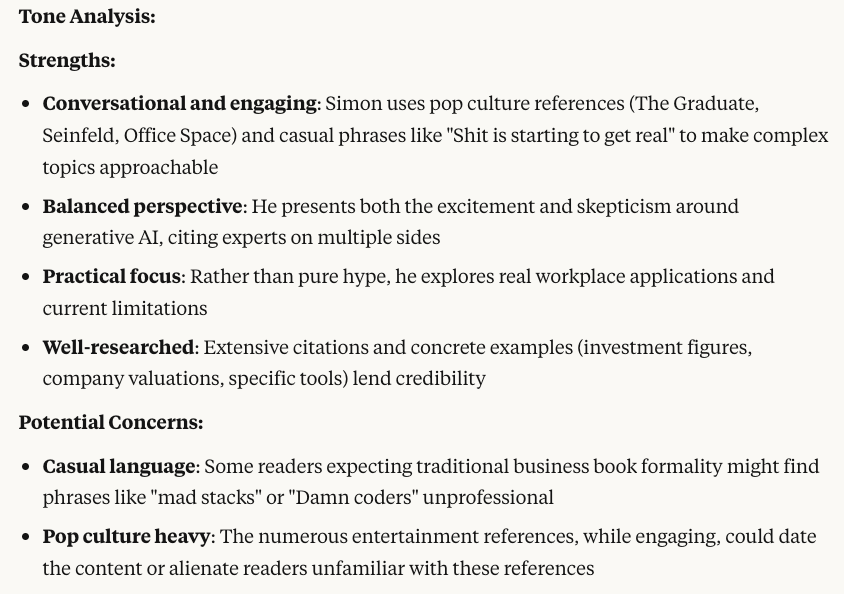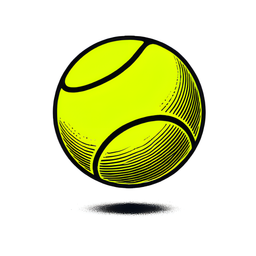What AI Thinks of Your Writing
It's never been easier to run your prose through the wringer.

In Asian Comedian Destroys America!, the comedian Ronny Chieng discusses his tone of voice and the problems it causes in his marriage. I can't do justice to his bit here. Netflix subscribers would do well to check it out.
The former Daily Show correspondent filmed his hysterical special in 2019. At the time, today's crop of generative AI tools didn't exist. Now, however, it's an entirely different kettle of fish. In today's post, I'll describe how this technology can easily help writers assess the words they're about to publish.
The Process
I uploaded an excerpt of The Nine: The Tectonic Forces Reshaping the Workplace and entered the following prompt:

Note that I'm currently on Claude's Pro plan.
A few minutes later, Claude spit out its analysis. I'm including it as an image rather than text because I didn't write the following words.

Read the whole breakdown here.
Lessons, Insights, and Thoughts
Claude's summary is certainly accurate, but not unique. (Grammarly is well aware of my style, as am I.)
It's not the first tool or person to point out that I enjoy referencing pop culture. Yes, my allusions will invariably fall flat with some readers. Along these lines, when I ghostwrite books, I ask my clients at the start of my projects if I should tone down the snark.
Next up, let's talk about my use of data. Any prescriptive non-fiction text ought to liberally reference statistics and include charts—especially early on when authors argue their cases. Again, I didn't need AI to tell me that I regularly support my assertions with plenty of numbers. All nonfiction scribes should follow this practice.
Without being defensive, I wouldn't call my writing meandering, but Claude's interpretation doesn't surprise me. Foolish are the writers who believe they can placate everyone. I've seen some be particularly blunt in passages when deeper explorations would have served them well.
Interestingly, after I let Claude examine my emails, it told me that my communication style isn't close to meandering.

Increasingly, your only limit is your imagination.
Now, let's put the two analyses together. I explore topics more fully in full-length texts than I do in email. To that, I say good.
Beyond Book Excerpts
Of course, you needn't stop there. Increasingly, your only limit is your imagination.
Case in point: On April 15, 2025, Claude can offer similar insights on your Gmail. In case you're curious, evidently I'm a friendly but direct communicator—not that I needed AI to tell me that.

What You Need to Know
Sure, AI can ape your writing. Still, become a slave to it, and you won't like the results: readers will likely find your writing stilted, although probably not to this degree. That's one extreme.
At the same time, don't be afraid to ask it questions. Its insights may surprise you. You can always ignore its recommendations, just as you would with Grammarly or a similar tool.
